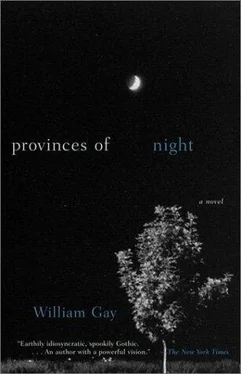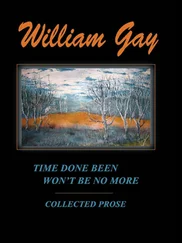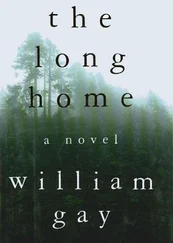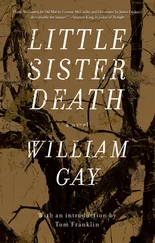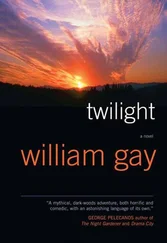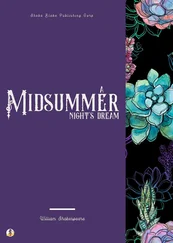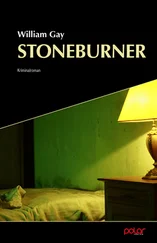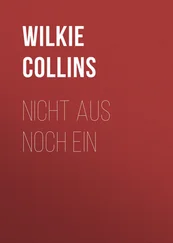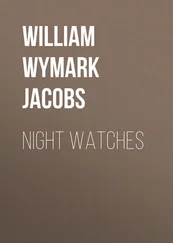Boyd showed it the knife. Get away from me, you son of a bitch, he told it.
Something stirred on the porch. Here, Jack, a man’s voice called. You there, what are you doing to that dog?
I’m just before cuttin the son of a bitch’s head off, Boyd said.
He could see the man standing on the top step, just a dark shape against the paler shape of the house.
You do and I’ll pound your hillbilly ass right into that sidewalk, the man said.
Why don’t you do it first and brag about it later, Boyd said.
Something had been growing for weeks inside him and he felt it burst, the tissues rupture and a richly corrupt and violent liquid spread warmly through him. Are you the one? he thought. I could practice on you. Get my moves down. I could start on you and work up to that drummer.
I see that knife but it doesn’t bother me, the shape said. I have a gun in the house.
In the house? Go get it. I don’t know why you people think Winchester made one Goddamned gun and then went out of business.
A silence fell. It elongated, spun out, frayed.
After a while the shape turned and went into the house. The door closed. Boyd waited but the door stayed closed. Finally he looked once at the dog then backed down the street. Not even the dog would follow him.

FOR DAYS Fleming had been seeing smoke that lay perpetually on the southern horizon, and when the wind was right he could smell it, faintly acrid, sometimes with the scent of burning cedar and pine. A haze hung over the treeline, somewhere back toward the river.
Late in the day he went with a blanket and a coffeepot and ground coffee folded in a paper bag and climbed a tall bluff that ascended from the creek. At its summit the cliff formed a rough dome that seemed to overlook the world itself and all that grew there was one enormous cedar leaning and windformed, its roots finding only precarious purchase in the fissured stone.
When dusk fell he built a fire and set the coffee in the coals to make. He sat against the trunk of the cedar and watched bats come veering up out of the twilight on isobars sheer and plumb as if they’d had courses plotted for them. In deeper darkness an owl crossed above him, its wings beating heavily and almost invisible, just a pale shape shifting against the dark heavens.
It had grown cooler with the fall of night and when the coffee was made he sat with the blanket drawn about his shoulders and drank a cup watching a glowing line of fire that was the southern horizon, a faint line that ebbed and throbbed like a length of redhot wire. In the unstable dark it seemed to advance and retreat, tremble and flare brighter under the fanning of winds he did not feel. As night deepened all he could see was the shifting line of fire, like some malfunction in the wiring of the world itself, as if the very night had combusted and was creeping incrementally toward him.
He branched off the Grinders Creek road and walked back toward the river. This road was just a log road but recent and heavy traffic had smoothed it and widened it and turned the hard white clay to a pale thick dust that rose and subsided with his footfalls and the passage of vehicles had talcumed the sawbriars and honeysuckle that shrouded the roadside. The road seemed to ascend all the way to the river and he stopped once to rest where he’d remembered a spring that flowed out of a hollow. He raked the wet black leaves away and let the water clear and drank from his cupped hands. The water was sweet and cold.
After a while he began to hear the sounds of machinery, trucks and what sounded like bulldozers, the stuttering whine of chainsaws. Still the timber held steady, a thick wall of green, but he could smell smoke strongly now and he could see it. He’d reached the summit of the long grade and here the world flattened out and the walking was easier. He’d forgotten how far away the river lay.
In late afternoon the road wound through an area being decimated by saw and dozer. Trees lay felled in all directions with dozers shaping them into smoking windrows and the blue haze shifted over everything as far as the eye could see. This was the spine of the ridge and here the earth sloped away toward the river and the hills and hollows seemed to be just blackened ash. Alongside the road trucks and lowboys had been parked and he could see men fanned out like an army of ants. He followed the road a time past all this destruction until the road itself vanished in a field of quaking ash. He hunkered for a time and studied the countryside in a kind of wonder. Not a sapling, not a twig or flower seemed to have survived. Everything past this point was ashes.
When he passed the trucks going back the way he’d come in a man was filling a Coke bottle with water from a five-gallon cooler set on a stump. When he drank he set the bottle back and took up a yellow chainsaw and set it atop a stump and began to file the chain.
How about a shot of this water?
The man turned and looked up. He wore a yellow hardhat and he appeared not much older than Fleming. Help yourself, good buddy, he said.
Fleming filled the bottle and drank then filled it again and walked with it to where the man was filing the saw.
What’s going on back in here?
We’re clearing off a hell of a new ground, the man said. You better drink up and go before a foreman sees you. Not supposed to be any civilians back in here. Have they not got those no trespassing signs up yet?
I didn’t see any.
There’d be a hell of a lawsuit if somebody got a tree cut on him. The TVA’s got a thing about avoidin lawsuits.
There’s nothing back there. Not a bush or a sprout. Why are you clearing it out so clean?
Do you not know sure enough?
No.
There’s goin to be a dam and a lake back in here. A hell of a lake, what they tell me. We’re clearing it clean enough to eat off of. I thought everybody knowed about it. Course nobody lives back in here, this is all company land. But we’re spreadin that way. Where do you live?
Fleming pointed with the empty bottle. How far does this lake go that way?
I don’t know, the man said. I just cut what trees they tell me. But it’s goin to be a hell of a lake. You might give some thought toward movin or learnin to swim.

FOR THREE DAYS the mail carrier had been a person unknown to Junior Albright and he had observed all this with a more than casual interest. On the fourth morning he sauntered down to the blacktop and idled there by the mailbox until the dustcolored Plymouth came around the curve.
This mail carrier was a woman, a heavyset woman with a bulldog jaw and short hacked-off hair. Albright had his three pennies ready. I need a stamp, he said.
She carefully tore a single stamp from a book and slid it into a small glassine envelope and exchanged it for the pennies.
Say, what’s happened to Harwood? he asked.
Mr. Harwood’s sick, she told him. They got me substitutin for him. He’s in a Nashville hospital.
You don’t say. What’s his trouble?
They don’t even know yet, the woman said. They keep runnin tests on him, callin in more specialists. Somethin to do with his stomach.
You don’t say, Albright said bemusedly.

OBLIQUE YELLOW LIGHT moved in waves across the broomstraw and early morning crows called from the cedar row where the cool still held and the dew lingered. When they set out it was just after seven o’clock but already a bloodred sun hung poised like a threat and the sky was a serene cloudless blue.
Fleming had expected they’d follow the road but the truck was bouncing across a field Brady had chosen as a shortcut. The furrows jarred Fleming so hard his teeth clattered. He was holding the water jug and a bucket of food his grandmother had packed and he was hard put to hang onto it and stay in the truck, for there was no righthand door. In fact the truck looked like a truck cobbled up by someone who’d heard trucks rumored but had never actually seen one, a funhouse mirror reflection of a truck. It served most of the time as a cutoff saw, one rear wheel removed and a belt and pulley mounted on the axle. The hood and front fenders were missing and on the driver’s side door someone had painted the legend JOLIE BLON in faded freehand script.
Читать дальше
